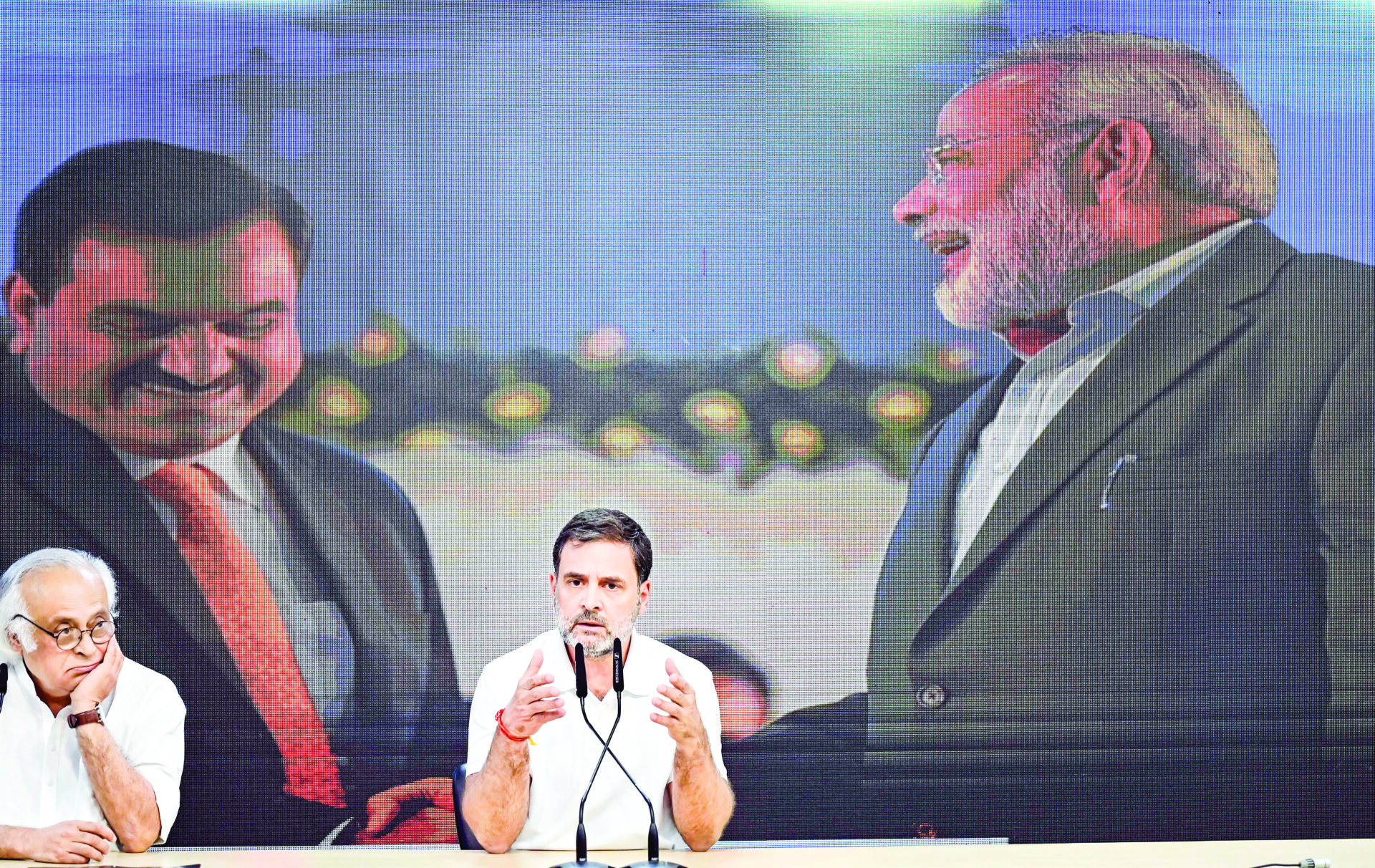Rahul Gandhi criticises Modi, Ambani, and Adani, but Congress struggles against caste politics and lacks public and regional support.
New Delhi: Ordinary Congress workers feel helpless as power and influential middlemen dominate the party, leveraging caste and religion to form small factions for selfish gains, trapping the party in endless turmoil. These individuals’ lifestyles, corrupt practices, and hypocritical methods starkly contrast with the grassroots workers’ values. The party has drifted far from the people, aspiring for a prosperous India while failing to adhere to any discipline or principles.
These were the words of former Prime Minister Rajiv Gandhi during the Congress centenary session at Mumbai’s Indira Nagar (Brabourne Stadium) on December 28, 1985. Since then, Congress has experienced numerous highs and lows. However, the recent Maharashtra Assembly elections underscored how Rahul Gandhi and his advisory group are undermining his father, grandmother, and party’s principles by championing caste and Muslim reservations, jeopardising the party’s future.
Rahul Gandhi continues to attack Prime Minister Narendra Modi and industrialists Ambani and Adani, but he overlooks the fact that today’s public is no longer impoverished like in the 1960s and 70s. Millions now participate in the stock market, investing in the same companies he criticises. Unlike the past, labour movements against corporate giants like Ambani, Adani, Tata, and Birla are absent. Communist parties are barely surviving in one or two states, and even in Wayanad, Communists worked against Rahul and Priyanka Gandhi.
Congress struggles to compete with caste-based politics led by Lalu Prasad Yadav, Tejashwi Yadav in Bihar and Akhilesh Yadav in Uttar Pradesh. It relies on their goodwill for survival in these states.
In Muslim politics, Congress is no match for All India Majlis-e-Ittehadul Muslimeen (AIMIM) leader Asaduddin Owaisi. In Maharashtra, aligning with Uddhav Thackeray, once dubbed a “Hindu king,” brought neither public support nor divine blessings, as Thackeray’s divided Shiv Sena suffered a crushing defeat.
In Jharkhand, Congress cannot claim credit for the minor success of Hemant Soren’s government, which rests on the grassroots connections of Shibu Soren’s Jharkhand Mukti Morcha (JMM). Meanwhile, the Modi-Shah duo in the Bharatiya Janata Party (BJP) emphasises development, respects regional leaders, and readily corrects mistakes from past elections. The Haryana and Maharashtra results dispelled doubts within the BJP and its opponents, affirming its strategy.
Modi’s focus on Hindutva, coupled with the ideals of the Rashtriya Swayamsevak Sangh (RSS), has been openly embraced with pride.
The BJP’s slogan, “If united, we are safe,” resonated throughout the elections. BJP and RSS workers organised countless small gatherings, implemented the “Panna Pramukh” strategy effectively, and showcased welfare programs alongside future aspirations, reaping substantial benefits, particularly among women.
Initiatives like housing, toilets, LPG connections, Ayushman Bharat for healthcare, and schemes like “Lakhpati Didi” have gained trust over the past decade.
In Maharashtra, allies like Eknath Shinde’s Shiv Sena and Ajit Pawar’s Nationalist Congress Party (NCP) faction were given substantial importance in governance and elections. BJP’s approach of accepting Nitish Kumar as Bihar chief minister and Shinde as Maharashtra CM embodies its “Sabka Saath, Sabka Vikas” mantra.
Historically, Congress didn’t allow even Dr. B.R. Ambedkar to win elections, and its recent attempts to woo Dalits and backward classes with symbolic gestures have failed in Maharashtra. Conversely, the BJP has won the unwavering support of these groups, promoting inclusivity through RSS founder Dr. Hedgewar’s principle: “We have only one caste—Hindu.”
India’s educated youth are energised by the BJP’s nationalism and India’s growing global stature. They are attracted to entrepreneurial and employment opportunities both domestically and internationally. Unlike earlier, families no longer expect their children to remain bound to their villages. Small farmers, often neglected by middlemen, appreciate even modest benefits like direct bank transfers of Rs 6,000–Rs 10,000, undermining Congress and Sharad Pawar’s attempts to stoke unrest.
For sustained progress, BJP leaders and workers must remain true to their foundational principles and ideals.
Digital era metrics like membership growth won’t ensure success without humility and adherence to values.
A BJP leader recently emphasised Hindutva’s ethos: “Earn no illegal wealth, avoid unethical practices, and lead a righteous life.”
As political awareness grows, leaders across parties—be it Congress, BJP, or regional outfits—must prioritise societal contributions through their actions and behaviour. Global challenges and foreign attempts to destabilise India’s political and economic

